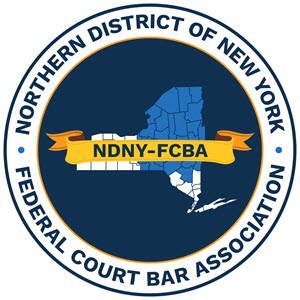Syracuse University College of Law; the Institute for the Study of the Judiciary, Politics, and the Media; and the NDNY-Federal Court Bar Association
United States Supreme Court: The 2017-2018 Term
The Supreme Court’s 2016-2017 term has been described as a “sleepy” term, marked by caution and consensus that reflected the eight justices’ “strenuous efforts” to rule narrowly to avoid deadlocks. After the 2016 election and the subsequent confirmation of Justice Neil Gorsuch in April, the Court is back to fighting weight. As speaker Amy Howe explains, the Court’s docket for 2017-2018 has “no shortage of blockbusters,” presenting issues including: the constitutionality of President Trump’s travel ban; whether Colorado’s public accommodations law violates a bakery owner’s First Amendment rights by requiring him to make custom cakes for same-sex weddings; whether the Fourth Amendment protects historical cell-site location information (and the continued viability of the controversial third-party doctrine); whether Wisconsin’s most recent legislative redistricting is unconstitutional partisan gerrymandering; and whether arbitration agreements that require employees to forgo collective, class-action relief are enforceable under the Federal Arbitration Act (a case in which DOJ’s position from before the election has changed). This program will examine the impacts of the 2016 election on the 2017-2018 term and on the composition of the Court going forward and will include previews and analysis of these and other important cases on the Court’s 2017-2018 docket.
Syracuse University College of Law and the Northern District of New York Federal Court Bar Association have been certified by the New York State Continuing Legal Education Board as Accredited Providers of continuing legal education in the State of New York.
“United States Supreme Court: the 2017-2018 Term” complies with the requirements of the New York State Continuing Legal Education Board for 3.0 credits towards the professional practice requirement. This program is appropriate for newly admitted and experienced attorneys.
This is a single program. No partial credit will be awarded.
United States Supreme Court CLE Materials Packet

